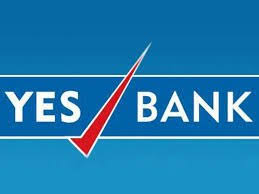Synopsis: The court allowed Yes Bank to auction a property offered by the Singh brothers as collateral against loans on which they subsequently defaulted.
Yes Bank Ltd has been permitted by the Delhi High Court to sell a property that was offered by the Singh brothers as collateral against loans on which they later defaulted.
The court said in its order, that the auction will, however, be conducted under the supervision of a commissioner appointed by the court.
Between 2015 and 2017, two loans of Rs. 500 crore and Rs. 565 crore to companies owned by the Singh brothers were approved by Yes Bank. The loans, following a default in July 2019, were considered non-performing assets.

In order to recover the amount, Yes Bank moved to sell the collateral. But Daiichi Sankyo of Japan opposed the auction, citing that a status quo on the assets had been ordered by the high court. By implementing a 2016 Singapore arbitral award in India, Daiichi tries to pay back more than Rs. 3,500 crore from the former billionaires.
Daiichi claimed that, considering the court’s status quo, Yes Bank’s attempt to auction the property reflected that it was colluding with the debtors.
Fortis Healthcare Ltd. separately,argued that it had rights over the property as it was a creditor to the different Singh Brothers community entities.
The court’s February 2018 order was modified by a Delhi High Court bench consisting of Justice Rekha Palli, allowing Yes Bank to auction the property. However, the court ordered the lender to deposit the selling proceeds in an escrow account, acknowledging that it is a matter of public record that Yes Bank’s past management was mired in charges of financial irregularities.
The proceeds, the court said, can only be used after the disposal of Daiichi’s plea challenging the role of various lenders in the dilution of the Singh brothers’ shareholding in Fortis Healthcare, including Yes Bank.
Yes Bank’s Arguments:
• The bank had an exclusive right over the property that went into effect in 2015.
• It was a secured creditor under the SARFAESI Act, being a charge-holder, and thus obtained a prior statutory right over the asset.
• As the court had only ordered a status quo on “unencumbered assets” in its order of February 2018, the charged property, being a secured asset, was not covered under the order.
Daiichi’s Counter Arguments:
• A separate application was filed alleging that some banks and financial institutions were colluding with the Singh brothers to dilute the Fortis Healthcare Ltd. shareholding.
• It also challenged the decision of Yes Bank to extend loans to the group entities by creating commitments for Fortis Healthcare Holdings’ 3.5 crore shares in Fortis Healthcare Ltd.
• Some of these charges are similar to the case of Vinay Prakash where the Supreme Court found that the same group entities were guilty of colluding in order to knowingly dispose of assets with a financial institution.
• The Singh brothers listed the property in the list of properties on which the high court issued a status quo order.
• The Delhi High Court also declined to hear Fortis Healthcare ‘s asset plea, stating that its claim could not take precedence over Yes Bank or Daiichi Sankyo’s claims because no decree was passed in its favour.

